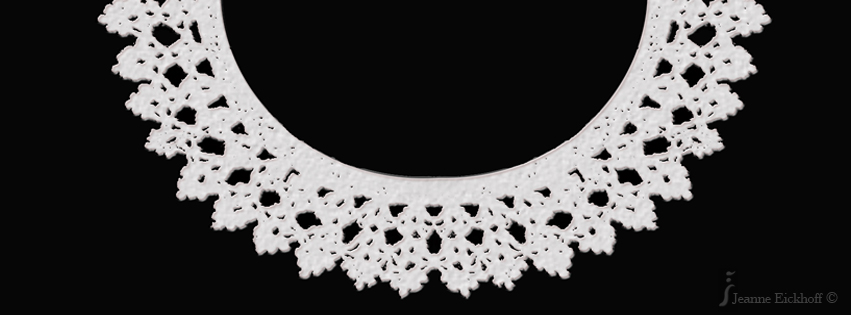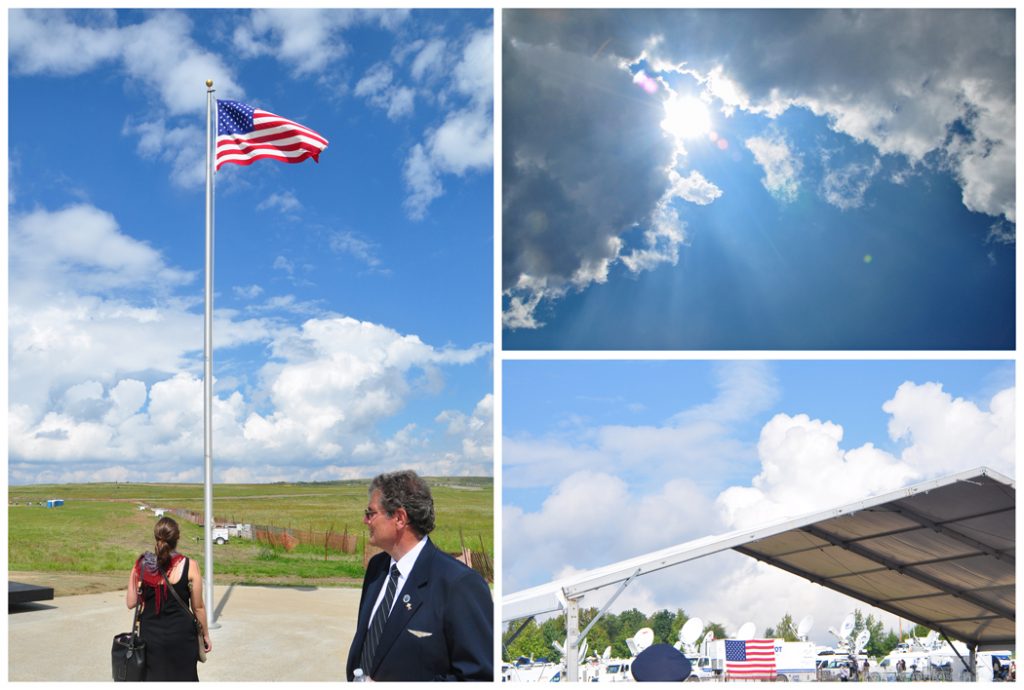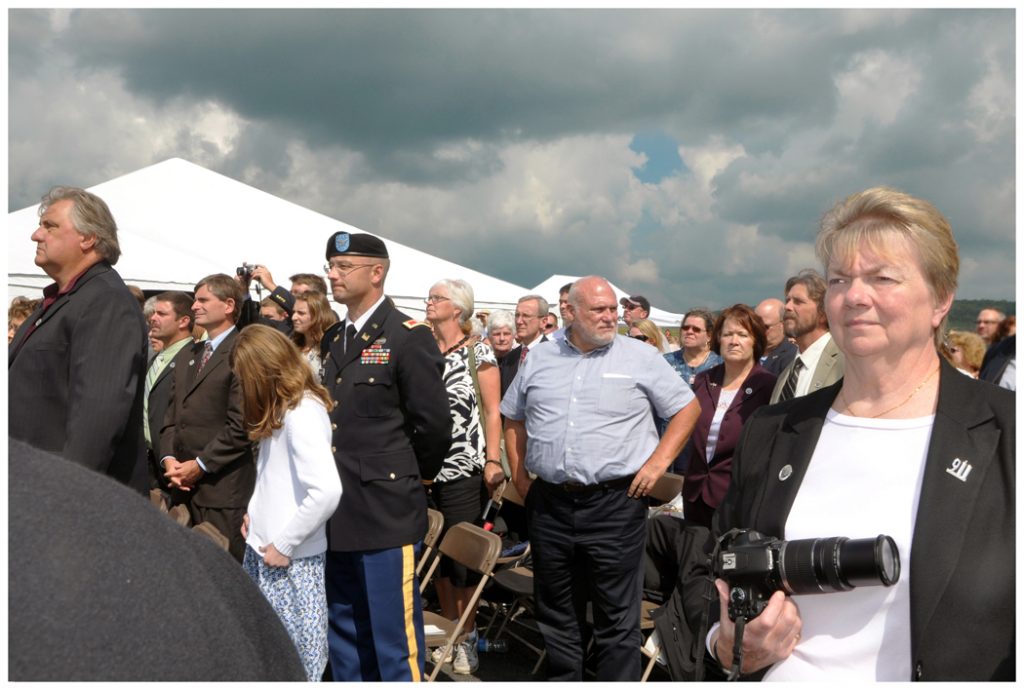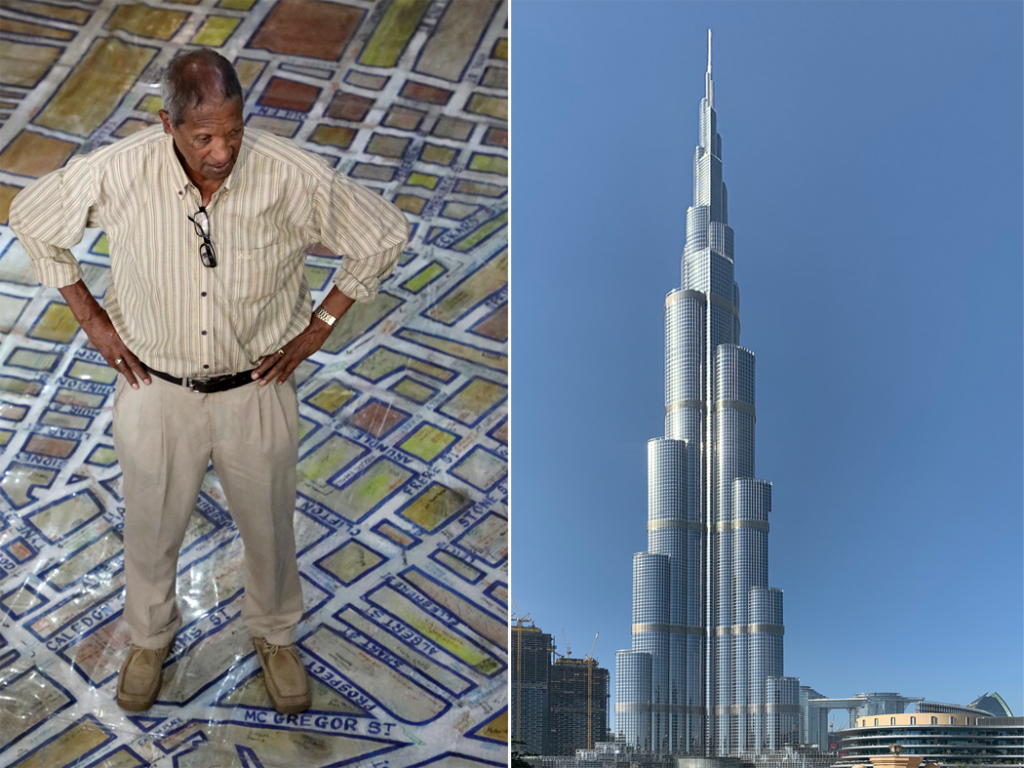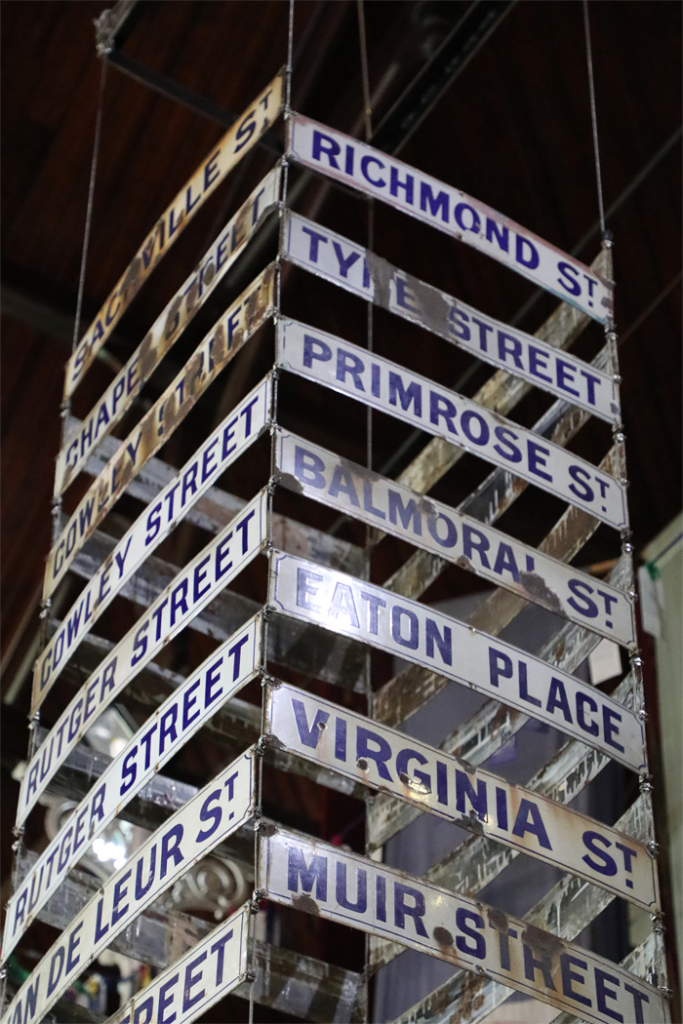Once Upon a Time, there was Traveling. Traveling was where people went from one location to another location. Not to locations like from one room to another in one’s own home, or even from one place to another in one’s own town – but from town to town, state to state, country to another country! Called travelers, people who did this went to these places on Airplanes. Airplanes were ships that flew in the sky and carried the travelers. Back then, when I traveled, I did so along with your Pilot grandfather. Pilots flew the airplanes. For your grandfather Larry, traveling was his job. He was always coming or going from a Trip. A trip was a completed circuit of travel from the home to any number and combination of places, towns, states or countries and then back to home. I hope you get to do this one day.
Love, Gjee
That’s the Way it Was
I wrote that for Kora, my granddaughter, who was just born last year, so she can know what traveling was like. Since she’s been on this earth, traveling is something people used to do. Back in the day, I liked to travel on the airplanes and I once in a while met her grandfather who might have been finishing a trip in a location I wanted to see. That’s the way it was. I traveled as often as I could, but being married to a pilot, meant that the ‘getting there’ of a vacation often meant I would be on my own.
Airline families flew in all kinds of crazy ways to get places. Sometimes we would fly North to catch a longer flight South. Going this way or that, eventually we’d get there. It was the Wild, Wild West prior to September 11th for airline families. My husband was a pilot for USAir and on that airline our family could navigate any of its flights (with special permission slips) and we called it Non-Rev travel – or non revenue for the airline, and it was also called Space Available aka Space-A. We used ID-90’s also, and for a small fee we could fly space-A available on other airlines. While it was a good deal, flying this way there was never a guaranteed seat, and after the horror of 9-11, became harder to do.
When my husband switched to flying cargo, there was no more non-rev for me! I didn’t want to fly in a box. ID-90’s became less and less reliable, and after being stranded in places hard to get out of, when I really wanted to get somewhere, I ended up buying tickets like everyone else. I still felt lucky because when I got to where I was going my husband would be there waiting in some far-off place. I considered it was flying two for one. And while it was rare, sometimes my husband and I would actually would fly ON the same airplane! Whenever that happened, I had to understand that as a pilot wearing his easily identifiable pilot uniform, he was allowed certain privileges that we, mere mortal travelers, were never allowed.
The following are a revamp of chronicles I came across in the journals I kept while traveling with Larry, a humorous look-back while we all wait for travel to return to normal – whenever that will be and whatever it will look like.
Travel – Post 9-11, Pre ToC, (Time of Covid)
For me to have been on an aircraft with my pilot-husband Larry, he would have to have been:
1.) Flying the plane, (which was rare in our case), or
2.) He was deadheading.
Deadheading, not a word I like much for obvious reasons, (and for the full dictionary on the horrific irony of aviation terminology, stop reading and check now YouTube for George Carlin’s airport shtick). When pilots deadhead, they are NOT heading an airplane into the ground; they are merely catching a ride to or from work. For example, sometimes pilots land a plane in Italy, then need to get to Paris where they will take command of their next airplane to fly it to New York. Consider deadheading, an Uber system for flyers. All the crew of any aircraft deadhead on occasion – some more than others depending on their route.
On the occasion where Larry would be deadheading on a plane that I might also have a ticket to ride on, I enjoyed watching him do his airline thing. Far as I knew for work, he just left the house and came back, so this was the closest I got to see him working! And don’t tell him, but I didn’t mind checking him out in his uniform, (I’ve always been a sucker for a uniform)! When Larry deadheaded on the same plane, it was a chance to observe him interacting with the ticket takers, other Crew or Crewmembers (who were other pilots but also, the Flight Attendants, people who tended to your needs during a flight). It took all sorts of people to get a plane in the air. Also when I entered the plane, and passed the little room up front with all the windows, I got to see him hang out talking shop with the plane’s drivers. I considered it a form of pre-flight entertainment.
Back then, when the company officially deadheaded Larry, (or shuttled him around) he was accustomed to getting there in style. For international flights his company always sat him in Business or First-Class seats – those were the fancy sections inside of a plane (called a Cabin). Sounds like a sweet deal, but in reality, it was so tired crew could rest.
Another, ‘unofficial’ way crewmembers got around the world for work was by picking any flight and hopping on it for a ride, the way most people hop on a bus or metro line. That’s what it meant for Larry to get a ‘ride’ to work – but it was also known as Jumping. Crewmembers wishing to jump on any plane only need List. Listing didn’t mean a ship leaning to one side or the other, it was to call ahead and inform the airline about an intent to jump. Now, jumping and deadheading were different. Jumping was not parachuting out of a plane; it was a complementary service that the airlines accommodated one another. Deadheads were paid for. When crew jumped on a flight, to get them where they were going, gate agents would give them any seat on the plane left unsold, and if there were none, pilots would be allowed to sit in the extra uncomfortable jumpseat up front in the Cockpit, sorry, ancient usage – not touching – it’s now known as the Flight Deck and that’s what the room up front with the best view is called. Once on the plane, flight attendants tried their best to sit jumping crewmembers – whenever possible – in first-class as a courtesy, again so they could get better rest. When airline folk traveled on business, they tried to take care of one another. After all, they knew what it is like living on the road, err – in the air.
When I rode on the same plane that Larry was deadheading or jumping on, it was usually my opportunity to watch Larry ride in first-class or business. Without me. Because my paid-for, ticket-to-ride seats were seldom, if ever, in first-class or in business, but far back in the plane cabin’s Never-Never Land, in a place called Coach.
Newport News to Dublin, Flight #USD2B
It was the start of a trip to celebrate our wedding anniversary; but also my birthday, which are NOT on the same day. All those years ago, I had the good sense of insisting on two special dates so each occasion would be commemorated properly into perpetuity. But to this day, because they are only seven days apart, both are usually celebrated crammed together. It’s kind of like having a birthday around Christmas – you get screwed on the presents. But after so many years, I’d become accustomed to it and to compensate made my present twice as big.
That year was our 27th Anniversary, and we were headed to Ireland for a week. From there we planned to go on to Lanzarote, Spain, one of the Canary Islands off the coast of Morocco, for a couple more. We would be on our own in Ireland. I’d brought along maps and employed a device called a Garmin, a primitive form of GPS to help us navigate the Emerald Isle.
Because it was an anniversary trip, and I really wanted to travel with my husband like everyone else, I bought him a real-live ticket as a surprise. But what I’d really paid for was the pleasure of enjoying Larry ride in the back part of the plane – in coach, aka ‘steerage’ – with me. Back then, any international flight required a minimum check-in time of two hours prior to a plane’s take-off. The Airport, (or the place where the airplanes came and went) nearest to our house was small and close by.
We decided to Check-In early at the airport, drop our Luggage, (sampler packs of your belongings) and then leave to enjoy a pre-departure lunch at a nice Restaurant, (which was a place where you could sit inside and eat food). At the Patrick Henry Airport we took turns checking-in while the other waited in the car. Check-in, was a communication to the airline that you were ready to fly; you’d turned in your ticket, they’d checked your identification and knew who you were and confirmed where you were seated. Then the airline took your luggage, and threw it into the belly of the plane and you hoped you’d see it again. After all that, you were expected to wait for the departure time. Prior to 9-11 we would have parked at the curb, gone in and done this together.
As Larry checked-in, I called my mother, as was custom before traveling, you would say ‘Goodbye,’ to everyone you knew just in case you never returned. I had emailed her our Itinerary, which was a detailed schedule of our trip. Now traveling to some destinations took more than one flight to get there. These separate flights were known as Legs. Our flight to Dublin took two legs to get us there – the first leg to Philadelphia, and from there a leg on to Dublin. To this day I still don’t know why they are called legs. My mother, well-season traveler herself, pointed out to me that as far as she could tell from our itinerary, Larry and I didn’t have seat assignments on either of our legs.
I explained to my mother that, for some reason, I hadn’t been able to make seat assignments, in business, first-class OR coach when I’d bought the tickets online. I assured her not to worry, that everything would be fine. I explained that Larry and I were at the airport checking-in early and would be seated together in no time. Then Larry returned to the car and told me, “Visit the lady with the long hair at the ticket counter. She’s helping us get seated together.” I bid my mother farewell and dragged my bag to check-in while Larry sat in the car and waited for me.
It’s Gonna Be a Bumpy Flight!
The lady with the long hair at the ticket counter told me that while Larry and I could fly seated next to one another on the first leg from Newport News to Philadelphia, that on the leg from Philly to Dublin, he’d been assigned the very last seat. Sneaky guy! The guy who gets all the privileges, every time he flew – hadn’t mentioned to me that he’d just snagged the last seat to Ireland! (So he’d planned to leave me at the Liberty Bell! Hmm.) I couldn’t believe it, but I’d been Bumped! To be bumped in airline lingo meant the airline had sold tickets to more travelers than they had seats to seat them.
The lady with the long hair comforted me by giving me ‘inside information’. “That flight is fully booked, (full). As a courtesy, I listed you as the first Stand-By,” she said most sincerely. A stand-by is a bumped traveler hoping that another traveler with an actual seat assignment forgets to arrive before it’s time for the plane to leave, such that they themselves might fill the empty seat. Airline family members were often stand-bys when they flew non-rev or space-A. For every flight here were typically multiples of stand-bys. What it meant was that if anyone didn’t show up for the Dublin flight in Philly, the lady with the long hair gave me priority over everyone to get that seat. As Eddie Izzard would say, “And this is all true”.
Clearly I was disappointed. Then the lady with the long hair offered me another consolation – a first-class upgrade to Philadelphia. “I have one last seat,” she said. I had visions of payback:
I’d sit in the very first seat – all the way to Philly. I’d get a massage… a hot facial! I’d enjoy free champagne. Gorge on filet mignon and sleep it off – the whole way in a horizontal position! Larry would back in coach – in steerage! I figured I’d mosey back there, behind the curtain, take him my nuts. I’d tell a self-deprecating first-class joke, I’d laugh and laugh, then return to my luxurious accommodations – up front, in the front of the cabin…
Could have I done that? No! The flight was barely an hour! I wouldn’t have time to even to pee on that flight! Besides, something deep in my soul couldn’t imagine sitting in first-class while my husband was in the back, and paying for an Economy ticket (i.e. cheap ticket). Go figure. (To be honest I didn’t take it because the upgrade wasn’t free. Now, if the upgrade had been free…)
But It’s Our Anniversary!
Encore. I’d have to travel alone and meet Larry in Dublin. I wasn’t happy about not having a seat for the second leg of my trip, but what could I do? I’d done it before, so many times, I hoped for the best. I returned to the car and we headed off for a quick bite of lunch. But you can imagine how I teased Larry about glomming onto the last seat!
Our son, Aaron, (who eventually became Kora’s father) met us for lunch. He wasn’t surprised to hear that, yet again, it looked like his dad and I would be traveling separately, “Even when you guys pay for the tickets, you can’t get there together? Is this really your anniversary?” he laughed and winked before he left with a hug.
Because we live so close to the airport, we returned our car home to be boomeranged back by our dear friend and neighbor, Carol, another experienced traveler. It was always fun to be taken to the airport by a friend. It was someone else to say goodbye to, and you wouldn’t have to pay for parking while you were gone. People took turns driving one another to the airport. Carol wasn’t surprised either to hear of our paradox, “Wait, you bought Larry a ticket this time, and because of that, you can’t use your ticket to fly on the same plane?” she chuckled and shook her head, “At least you know what you need to do! Happy Anniversary!”
It was a quick load onto the airplane. We cozied in together on a USAir Dash 8 – an airplane Larry had flown long, long ago. This time no one noticed Larry, no one offered him water or a seat in first-class, or paid any attention to him at all! An everyday Joe Traveler he was. No uniform, he wore khaki pants with a blue sport coat and salmon-colored shirt. Aaron had mistaken it for pink.
Sitting together was such a privilege for us! We talked to one another; stashed our stuff in each other’s seat bins, we fastened each other’s seat belts. It was our anniversary! And all was well. He was just about to hold my hand. Then the last person came onto the plane and announced she was going to kill her husband.
We’re All Going Down!
The lady was very agitated and made funny noises that sounded like a cross between an agonized moan and a pig squeal. In addition, she made facial expressions hard to explain without demonstrating them, and if I did, I might only come close. She wore sunglasses and a floral swirly frock. Her eyes rolled, her mouth sagged agape and she captured air in raspy gasps. Her beautifully manicured hands fluttered around and over her turban wrapped crown. In the aisle, her lengthy scarf lazily dragged over seated heads as she spun around in slow circles, mentioning again and again how this time, she’d really decided to kill her husband.
Even if this had been before 9-11, can you imagine this not capturing more than a few people’s attention? Firstly, all on board were thinking, ‘Is her husband on this plane?’ and more importantly, ‘Is he sitting close to me?’ and other things like that flew through our minds. Heads turned like water sprinklers back and forth searching the cabin for the doomed spouse/target. I hoped he wasn’t wearing a salmon-colored shirt. The good news was that her husband was NOT on the plane! Whew! But, she assured us, he was ‘dead meat’ when she saw him again, that was IF, she said, “If I live that long.”
Poor Killer-lady, you see, didn’t like flying – let alone on a Propjob, (Google: Wright Bros/propjob/whatisthat?). Her husband had kept secret her ticket was for a prop engine airplane. Therefore, she equated we were all going to die. Nice lady, turns out, just terrified. For her panic attack she apologized profusely to us cabin dwellers, first-class, business, coach alike, (because on a propjob – they’re more or less all together). The lady asked for water so she might take her magic pill. The flight attendant was more than happy to accommodate her. Killer-lady ended up with, like 12 water bottles. People were sending their own up from the way back.
Collectively we all took a deep sigh, “That’s better,” much nicer. And what I learned from that is – if you come on an airplane and announce you are going to kill your husband, you’ll get water like you’re in first-class! Mercy, the rest of us didn’t even get a beverage service to Philly…and those poor people in the way back….so thirsty.
Larry and I never had an opportunity to hold hands, because he held hers. Of course, her seat was across from ours! You see in the commotion and trying to help the flight attendant Larry was identified as crew. He showed her his badge. “Ah yes, a pilot,” said the flight attendant. In a loud voice she added, “Ma’am, you’re sitting across the aisle from a pilot!”
Crew frustrated with scaredycats frightened to fly often relied on jumping crewmembers in this way, to help address various cabin difficulties. And it did seem to calm some folks down. That’s because there was a difference sitting next to traveling airline crew – you were safer. It worked miracles, but there was no sense to it really. Because if a plane, God forbid, were to suddenly go down – there’d be little extra protection by sitting next to a crewmember – wearing a pink shirt or a uniform. But they could hold their hand as we all go down.
The Kindest Man in the World
It was so sweet. My Larry, holding the lady’s hand across the aisle. I thought, ‘We are paying for this.’ The guy seated on Killer-lady’s other side appeared nervous and fidgety. Once in the air the flight attendant offered to move him to another seat, but he braved it and stayed put. He didn’t hold her hand though. I drew a deep breath and let it all go; smiled and kissed Larry, “Happy Anniversary, sweetheart.”
By the time the brief flight was in descent the lady was laughing and telling jokes. We all laughed along, (with a huge sense of relief). And it wasn’t all my husband’s doing with the hand-holding, but for God’s creation of that little tiny pill. There was a tremendous round of applause upon landing, and I was unsure if it was for making it without her killing anybody, we didn’t crash or for her bravery. I still can’t help but wonder what ever happened to her husband after that flight.
So Far So Good
At the Philadelphia International Airport Larry and I hustled to the Gate and were prepared to beg for my seat on the airplane with Larry for the Dublin leg, (mind you I had a ticket). Gates are waiting room areas in airports where travelers congregate before being allowed Passage onto a plane. Travelers are also called Passengers because of this. At the gate we were surprised to find that what was an impossibility for the lady with the long hair in Newport News was, “No problem,” for the man with short hair here in Philly. We were offered and took seats together in the Bulkhead. It was that simple. All that worry.
Bulkheads are wall barriers that separate the parts of the cabin; first-class from business class, business from coach, (no touching!). Bulkhead seats, directly behind these walls were also found in first and business class but in coach could be some of the very best seats. We felt lucky getting the best seats in coach. The flight to Dublin takes 7 hours and 2 minutes. It was in one’s best interest to get the very best seat locations on international flights from the United States to Europe because of the way the airlines scheduled them.
If You’re Sleepless in Seattle, Fly to Europe
You might as well. The way it was went like this – if you were an American who wanted to visit Ireland or anywhere in Europe, you could leave from anywhere in America, at any time of the day that would ensure you would lose one night of sleep.
It was that simple. No matter how many legs of your trip had, to go to Europe from America was to forfeit one night’s sleep. I think there was some sort of mandate that no flight could fly East-bound over the Atlantic during the day – just not ‘plane’ possible. It was the airline’s job to get travelers to arrive in Europe, (name any city) from precisely 6:00 to 9:00am. Period. And that was precisely one half day, or 12 hours before any Hotel would allow a traveler to check-in, (Hotels were buildings with gobs of rooms outfitted with beds where travelers slept and accessed their luggage if it had arrived. You didn’t need a ticket for a hotel to check-in, just a reservation or listing; you wanted to be on the list at a hotel when you got there). American travelers arriving in Europe, blurry eyed and half-dead were left to wander the streets dragging their bag with nowhere to go.
Flying to the United States from Europe was a much better deal; flights from there left in the morning – at decent, civilized hours like 9:00 or 10:00am. You didn’t even have to get up early. Europeans had it figured out. Their flights to America were during the day – you were awake anyway so you could work, watch a movie, eat lunch, take a little nap, write your novel – all assured that you wouldn’t be late for supper in New York and you’d not lose not one wink of shut eye.
But U.S. departures along with the time difference, plus being seated – perhaps in coach – on a full airplane that’s packed and cramped, equated to a L O N G 7 hours and 2 minutes. 422 minutes! That’s a lot of minutes! There’s an equation for inches to minutes that I won’t get into but suffice to say that every inch of room you had on a seat in coach counted – well, bigtime.
Bulkhead seats are usually seats with lots of room, a mathematically calculable space we knew as legroom, and legroom was used to stretch out legs, (in this case meaning not rooms for your flights, but your own, actual two legs). Airlines measured and advertised legroom down to the slightest decimal and fraction; it was that important to keep track of. But not all plane cabins were configured the same way. And even experienced travelers and crewmembers, familiar with all the various layouts, sometimes simply forgot to ask about the particulars of planes floor plan, especially when they were happy to be just getting on Board. Larry and I remembered we’d forgotten this once we’d boarded, (not like surfboarding dude, to board and boarding meant to get on a plane). “No wonder the seats were available!” we groaned. On that leg, there was enough legroom for a small dwarf.
As it Twas in the Beginning
Airline seats in coach were notorious for being small and close together without much legroom. The very first ‘coach’ referred to a closed-in cabin, that didn’t fly but had wooden wheels and it was pulled by a horse. And because of this, airlines used the same term to apply to the section with the least expensive seats. Don’t ask me why. This largest section of seats, (on any passenger plane) was also referred to as Economy, (as in affordable). “Coach or Economy?” the someone asking was trying to fool you, because it was not a choice but the same thing! But all seats were not the same, and the one advantage that non-bulkhead seats in coach had over bulkhead seats, was that armrests between the non-bulkhead seats hinged up and down and could be tucked out of the way thereby inching out that little extra space, so critical for comfort. There was no advantage to a bulkhead seat with no extra legroom in any section of the cabin especially because bulkhead armrests were fixed.
From doubt that the lady with the long hair created over whether-or-not Larry and I would be even on the same plane, to having the man with the short hair, putting us in adjoining seats, this was the last straw that broke the bulkhead’s back. Upon spying the lack of legroom for my long legs, accompanied with no retracting armrests, we ended up not riding next to one another after all. There was but one empty seat (with no recline) in the very back of coach – a place I was all too familiar. I kissed my husband farewell for the night. Like so many flights before, Larry ended up sitting in the front, (only this time in the bulkhead, legs draped over the armrests and into my empty seat) and I slept in the back with some strange guy.

